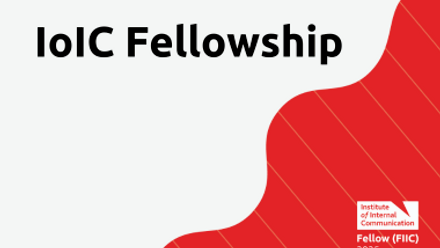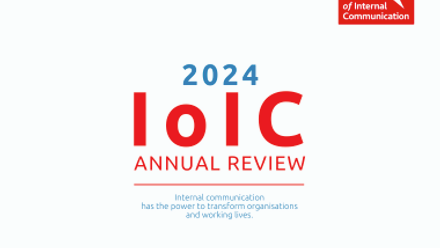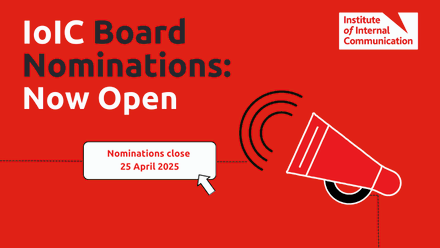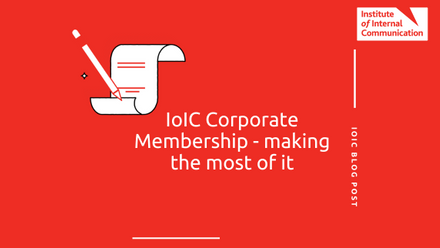IoIC supports research project exploring the history of internal comms
IoIC is taking part in a project researching the history of internal communication. The study – the first of its kind – incorporates evidence of internal comms since 1880. Its archival research is unprecedented in scale and scope.
Dr Joe Chick, research fellow at Brunel University, explains: “Internal communication is often seen as a new profession, even by those working in the sector. In reality, it has a long history, dating back to the late 19th century.”
To better understand the last 30 years of internal communication, researchers are conducting interviews and recording first-hand accounts of professionals whom the study is aimed at.
The hope is that, by creating a comprehensive archive of IC through history, professionals take pride in their field. Joe explains: “Our project will support the development of a sense of professional identity and a greater understanding of how communication methods have evolved to fit an ever-changing world.”
Dr Michael Heller, reader and division lead in marketing at Brunel University, adds: “Internal communication has been a part of our history for longer than people realise. We are not just looking at company magazines – we have found that memos were being used almost like emails, while the first corporate videos started to appear in the 1930s.”
The archival evidence comes from 20 public and private organisations, including Unilever and the British Army.
Digging into the IoIC archives
Along with Boots, the British Library and John Lewis, IoIC is one of nine partners supporting the study and, with archives dating back to 1949, was instrumental in securing the £630,000 grant from the Economic and Social Research Council. Michael says: “Getting these grants is really difficult – it’s an extremely competitive field.”
The challenge is around demonstrating that the study has both social impact and potential for knowledge exchange.
About the social impact, Michael reflects: “There has been a lot of debate about how important IC is to economy, but there is no doubt. IC is essential to employee engagement, and the establishment of two-way communication ensures that workers are able to enforce their rights. Wellbeing is especially relevant now, given all the strikes we’ve been having in the country.”
The study aims to legitimise IC, showing its rich history. From being a profession of only a handful of people in the 1950s, there are now more than 45,000 people working in this field in Britain, who have established essential lines of communication between leaders and employees.
The diffusion of knowledge is another key aspect of this project, which is why IoIC is contributing by sharing blogs and podcasts based on the research on its channels.
Publicising the research findings
Although it’s early to make conclusive statements, there are already plans to use the findings to strengthen IC.
A book will be written for professionals. Michael says: “Writing down history is the first step in the legitimisation of a profession. It also gives us a closer emotional connection through memory. Memory and history are not the same thing, but they are closely related, and both are important to build a sense of identity.”
IoIC president Suzanne Peck adds: “Our profession has had an increasingly persuasive influence on ‘organisational remembering’ of the past and been part of how organisations have used IC over the years to legitimise themselves to employees.”
The findings will be open to the public: in addition to an exhibition in London at the end of the study, a public archive will be opened at Brunel University, where everyone will be able to access images and interviews.
Michael says: “People care about this project – think of all the people who keep internal magazines if they are mentioned in an article. Our priority with this study was to support professionals and organisations, but we want the general public to be involved as well.”
IoIC members can take part in an onlinel focus group later this month. This session will collect information about their knowledge of the history of IC; use this link to register to take part in the virtual focus group on 26 June (10am–11.30am). There will be another assessment at the end of the project. Moreover, for IoIC’s 75th anniversary in 2024, a mini book has been discussed, along with a workshop, to promote the findings of the study.
Suzanne concludes: “By better understanding IC’s historical role, we have an enhanced awareness of our legitimacy, purpose and value. And this learning from the past will surely give us valuable insight into making sure we continue to evolve and influence as a profession.”
Researchers are keen for IC professionals to visit the project website and social media sites, and share their stories on these channels, while also keeping an eye out for future workshops.
Further information:
Website: historyofinternalcomms.org
Twitter: @HistoryOfIC
Facebook: History of Internal Communication
LinkedIn: An Institutional History of Internal Communication in the UK






